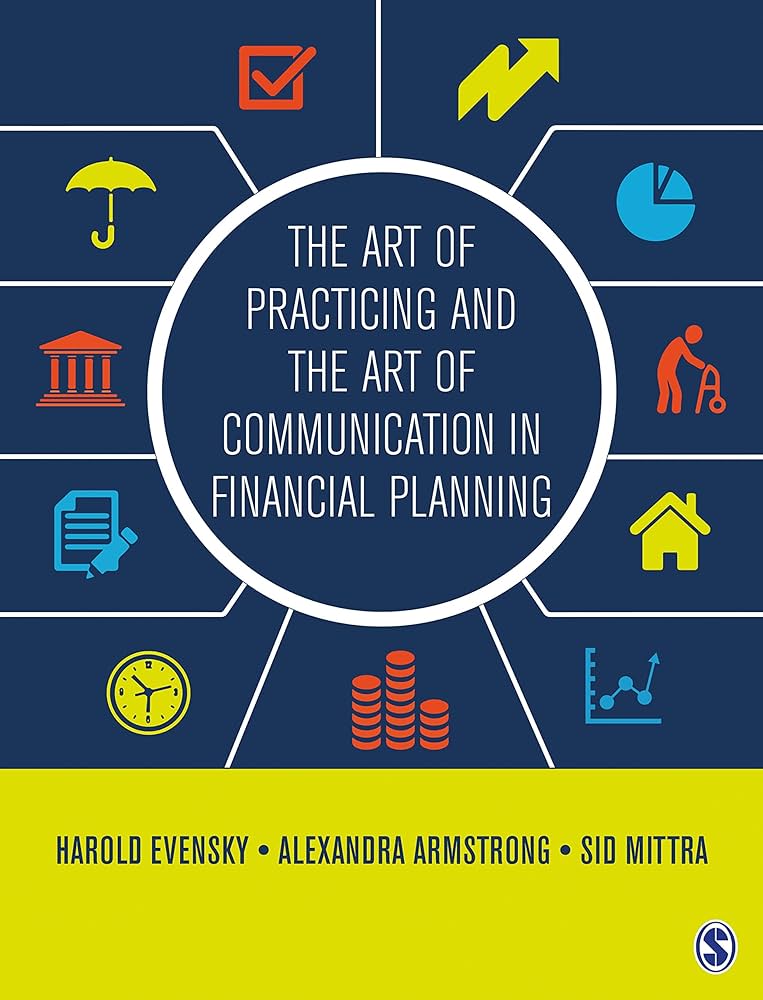Becoming a Certified Financial Planner: A Comprehensive Guide
I’ve always been fascinated by the world of finance, so you can imagine my excitement when I decided to share everything I know about becoming a Certified Financial Planner. It’s one exhilarating journey, let me tell you. This guide is packed with all the nuggets of wisdom you’ll need, from understanding the certification process to navigating the exams, and not forgetting the importance of real-world experience. If you’re as passionate about financial planning as I am, and you’re looking to make it your career, then you’re in for a treat with this comprehensive guide that lays it all out.
Understanding the Role of a Certified Financial Planner
So, what’s the deal with Certified Financial Planners, or CFPs as they’re more commonly known? Let me break it down for you. It’s not just about playing with numbers and charts; it’s a role with a much broader scope and significant responsibilities.
Definition and scope of a CFP
A Certified Financial Planner is someone who’s passed rigorous exams and met strict requirements to earn the title. But it’s more than just a title. A CFP helps individuals manage their finances, offering advice on taxes, investment strategies, estate planning, and retirement savings. Basically, if it involves your money and future, a CFP’s got your back.
Key responsibilities and duties
My day-to-day isn’t just sitting behind a desk crunching numbers. I spend a lot of time talking with clients, understanding their financial goals, and crafting plans to help them achieve these goals. From advising on investment strategies to preparing for life changes like marriage or retirement, the responsibilities are varied and profoundly impactful.
Importance of CFPs in financial planning and advisory
Think of a CFP as a coach for your financial health. Just as a good coach can change the game, a good financial planner can significantly impact your financial wellbeing. We’re here to guide you through the maze of financial decisions, both big and small, ensuring you’re on the path to meet your financial goals.
Difference between a CFP and other financial professionals
While there are many financial professionals out there, CFPs are a unique bunch. Unlike other financial advisors, CFPs are held to a higher standard of education, experience, and ethics. This isn’t just any certification; achieving it requires dedication, and maintaining it demands continuous learning and ethical practice.
The Education Requirement for CFP Certification
Venturing into the world of certified financial planning isn’t for the faint of heart. There’s a significant educational journey ahead for those who choose this path.
Overview of educational qualifications needed
To even consider taking the CFP exam, one must first navigate through some pretty rigorous academic waterways. This begins with completing a comprehensive list of college-level coursework in financial planning or a related degree. We’re talking about subjects that cover the ins and outs of taxes, retirement planning, estate planning, and more.
Accredited institutions and programs
Not just any course or college will do. The institution or program of your choice needs to be accredited by the CFP Board. This ensures the education you’re receiving meets the high standards set by the board and will actually prepare you for what’s to come.
Self-study vs. classroom learning options
There’s some flexibility in how you gather this knowledge. Traditional classroom settings offer structure and direct access to instructors, which some find invaluable. However, for those juggling a job or who simply prefer a more self-directed approach, there are accredited online programs and self-study options available.
Importance of a bachelor’s degree
To top it all off, a bachelor’s degree is required to obtain CFP certification. It doesn’t necessarily have to be in finance or a related field, but I found that having a background in finance certainly helped me understand the complex world of financial planning more deeply.
Completing the Required Coursework
Before you can even think about the certification exam, there’s a mountain of coursework to get through.
Core areas of study
The coursework covers a broad spectrum of financial topics, ensuring you’re well-rounded in your knowledge. This includes investment planning, income tax planning, retirement planning, estate planning, and risk management, among others. It’s like going back to school, but this time your homework directly impacts real people’s lives.
Timeline for completing coursework
Typically, this journey takes a few years. The exact timeline can vary based on whether you’re studying full-time, part-time, juggling work, or if life throws you a few curveballs. Patience and persistence are key.
Balancing coursework with professional obligations
For those of us already working in the financial field or elsewhere, balancing work with this intensive studying can be challenging. I had to master the art of time management and sacrifice a few social activities to make sure I stayed on track with both my professional and educational responsibilities.
Resources and materials for effective learning
Fortunately, there’s no shortage of study materials out there. From textbooks recommended by the CFP Board to online resources and forums where fellow CFP aspirants gather to share insights and tips, there are plenty of tools available to help you succeed.

This image is property of images.pexels.com.
Passing the CFP Certification Examination
Ah, the examination—the final frontier on the journey to becoming a CFP. It’s as daunting as it sounds, but with the right preparation, it’s entirely feasible.
Understanding the exam format and content
The CFP exam is comprehensive, covering all areas you’ve studied during your coursework. It’s designed to test not just your knowledge, but your ability to apply that knowledge in real-world financial planning scenarios. Familiarizing yourself with the exam format and types of questions asked is crucial.
Strategies for effective exam preparation
Everyone has their unique study strategy, but I found a mix of study groups, practice exams, and reviewing case studies to be particularly effective. Consistency is key—cramming at the last minute is a risky strategy for an exam this comprehensive.
Scheduling the exam and registration process
You’ll need to be strategic about when you schedule your exam. Consider your personal and professional obligations, and give yourself ample time to prepare. The registration process itself is straightforward, but don’t wait until the last minute to sign up. Spaces can fill up quickly.
Dealing with exam day and handling stress
Exam day can be nerve-wracking, to say the least. To minimize stress, make sure you know the logistics—where to go, what to bring, and what the exam conditions will be like. A good night’s sleep and a calm morning can also do wonders for your mindset.
Gaining Relevant Work Experience
Passing the exam isn’t the end of the road. There’s also the matter of gaining relevant work experience.
Types of qualifying work experience
The CFP Board requires you to accumulate a certain number of hours in relevant work experience. This could be through direct financial planning with clients, supporting other financial planners, or roles that contribute to the financial planning process. It’s a broad definition, but the aim is to ensure you have real-world experience before you’re fully certified.
Strategies for finding and securing appropriate roles
Landing the right role can be tricky, but not insurmountable. Networking is crucial—I cannot stress this enough. Connecting with other financial professionals and attending industry events can open doors you never knew existed. Don’t be afraid to start in a role that might seem peripheral; it’s all valuable experience.
Documenting and submitting work experience for verification
Keeping detailed records of your work experience is vital. You’ll need to prove that your role meets the CFP Board’s requirements, which involves documenting your responsibilities, the hours worked, and having a supervisor sign off on your experience. The documentation can feel cumbersome, but it’s a necessary step towards certification.
Leveraging work experience towards future career growth
This work experience isn’t just a box to tick. It’s an opportunity to learn, grow, and shape your future career. Each challenge faced and overcome is a stepping stone to becoming a more competent and confident financial planner.
Ethics and Background Checks
Ethics is the backbone of the financial planning profession. Without it, the trust necessary for successful client relationships simply wouldn’t exist.
Importance of ethics in financial planning
As CFPs, we are trusted with the financial futures of our clients. This is a massive responsibility and one that demands the highest ethical standards. Our advice can change lives, and maintaining integrity is non-negotiable.
CFP Board’s Code of Ethics and Professional Responsibility
The CFP Board has laid out a comprehensive Code of Ethics and Professional Responsibility that all CFPs must adhere to. It covers principles like integrity, competence, fairness, confidentiality, and professionalism. Familiarizing yourself with and committing to these principles is crucial.
Background check procedures and requirements
As part of the certification process, you’ll undergo a thorough background check. This includes checking for any criminal records, previous financial indiscretions, or anything else that might question your ability to uphold the CFP’s ethical standards. It’s best to be upfront about any potential issues from the get-go.
Consequences of ethical violations
The consequences for violating the CFP Board’s ethical standards are severe and can include suspension or revocation of certification. It’s a reminder of the gravity of our role and the importance of maintaining ethical standards at all times.
Applying for CFP Certification
So you’ve passed the exam, and you’ve got the work experience. It’s time to apply for certification.
Completing the CFP certification application
The application process is your chance to bring together all your hard work. It involves submitting documentation of your education, passing the exam, work experience, and agreeing to the CFP Board’s ethical standards.
Submission deadlines and fees
Keep an eye on submission deadlines to avoid any last-minute panics. There’s also a fee involved, which, while not insignificant, is an investment in your future career. It’s all part of the process of joining the ranks of CFP professionals.
Documentation and proofs required
You’ll need to provide proof of your education, exam passing certificate, documentation of your work experience, and any other requirements specified by the CFP Board. Organization is key here; keeping detailed records from the start will make this step a lot smoother.
Understanding the review process by the CFP Board
Once your application is submitted, it goes under review by the CFP Board. They’ll verify your documentation and ensure you meet all the requirements for certification. This process can take some time, so patience is key. It’s just the final step in a challenging but rewarding journey.
Maintaining Your CFP Certification
Earning your CFP certification is a massive achievement, but it’s not the end of the road. Maintaining your certification requires continuous effort.
Continuing education requirements
The financial world is constantly evolving, and staying on top of changes is crucial. The CFP Board requires a certain number of continuing education hours to be completed each renewal period. This includes specific ethics training, ensuring CFPs remain sharp and ethical in their practice.
Renewal process and fees
Just like the initial certification, maintaining your CFP designation involves a renewal process and fees. It’s a small price to pay for the credibility and opportunities that come with being a CFP.
Staying updated with changes in financial planning practices
Subscribing to industry publications, attending webinars and conferences, and engaging with other financial professionals are all great ways to stay informed. The learning never stops, and neither does the opportunity to grow and improve.
Engagement in professional and community organizations
Being a CFP isn’t just about what you know—it’s also about who you know and how you apply your knowledge to benefit others. Engaging with professional organizations and contributing to your community can enrich your career and personal growth in unexpected ways.
Career Paths and Opportunities for CFPs
The certification opens doors to a variety of career paths within the financial planning industry.
Career advancement opportunities
With CFP certification, the career ladder extends upwards. Opportunities for advancement into senior financial planner roles, management positions, or even starting your own financial planning practice become accessible.
Specializations within financial planning
The world of financial planning is vast. Some CFPs choose to specialize in areas such as retirement planning, estate planning, or wealth management for high-net-worth individuals. These niches can be incredibly rewarding and offer a way to differentiate yourself in the market.
Employment sectors: private, public, and non-profit
CFPs find homes in diverse work environments. Whether it’s working for a private wealth management firm, offering financial counseling through public agencies, or providing pro bono financial planning services for non-profits, there are opportunities to match your career goals and personal values.
The role of networking and professional development
Building a network of professional contacts is invaluable. Joining CFP-related associations, attending industry conferences, and even participating in online forums can provide support, opportunities for collaboration, and insights into trends affecting the financial planning field.
Navigating the Challenges and Rewards of Being a CFP
The path to and through CFP certification is fraught with challenges but filled with immense rewards.
Common challenges faced by new CFPs
Starting out can be daunting. Building a client base, gaining trust, and mastering the art of financial planning takes time and perseverance. There’s also the challenge of keeping up with changing financial laws and technologies that impact financial planning.
Strategies for overcoming these challenges
Success comes from never stopping learning and adapting. Making use of mentorship programs, continual professional development, and embracing technology can all help overcome these initial hurdles. Remaining client-focused, showing empathy, and providing value will build your reputation and client base over time.
Rewards and fulfillment in the financial planning profession
Despite the challenges, the rewards of being a CFP are numerous. There’s the financial reward, of course, but more than that, there’s the satisfaction that comes from making a meaningful difference in people’s lives. Helping clients achieve their financial goals, whether it’s buying a home, saving for their children’s education, or planning for a comfortable retirement, is incredibly fulfilling.
Future outlook for Certified Financial Planners
The demand for financial planning services is only expected to grow in the coming years. With an aging population and increasing complexity in financial products and regulations, the need for skilled and ethical financial planners is clear. For those willing to dedicate themselves to achieving and maintaining CFP certification, the future looks bright indeed.






